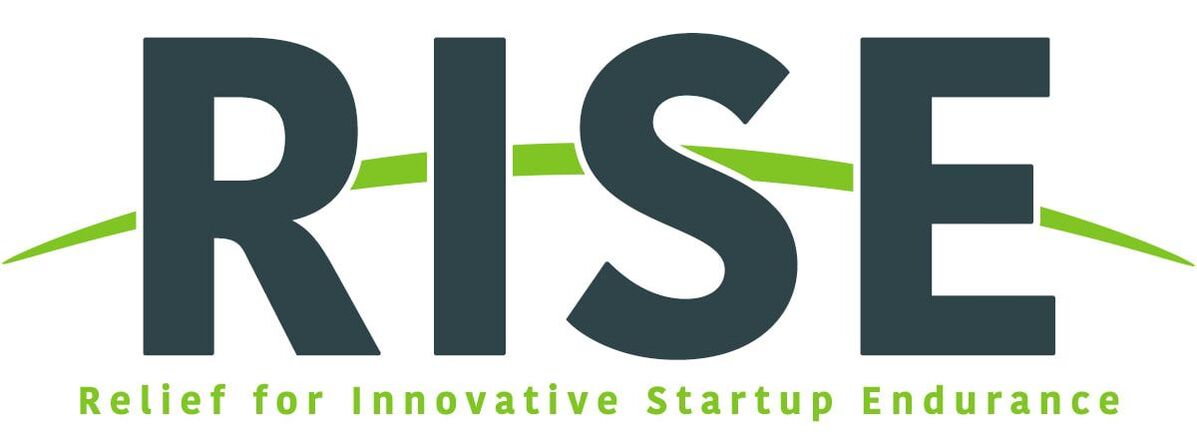|
By: Josh Sloat In late April, we announced an award program to help innovators impacted by the COVID-19 pandemic. Our original intent was to offer the award of a free provisional application or $5,000 toward a non-provisional for one startup whose impact potential rose above the rest. What followed the announcement exceeded our wildest expectations. The response was overwhelming in the best possible way, but did make for an incredibly difficult selection process. Your stories broke our hearts and your perseverance inspired us – so much so, that we decided that the original plan for a single award was far too constraining under the circumstances. Given the high volume of quality submissions and our desire to help as many as possible during these trying times, we expanded the offering beyond the single $5,000 award to include the addition of $2,500 awards to three other exceptional finalists.
We couldn't be more pleased to announce that the first place award goes to CAPNOS, with runner up awards going to PedalCell, realLINGUA, and Kaiser Precision Software, LLC. The recipients are a truly gifted collection of entrepreneurs who will surely do great things. All bring hugely impactful and timely innovations, backed by groups that have what it takes to deliver commercial success. We couldn’t be more thrilled about the potential to be a part of their journey and endurance during this critical time.
0 Comments
By: Daniel D. Wright The tension between hype and IP securityFinance wants to brag about R&D’s big discoveries before the next round of fundraising. Marketing is itching to release new promos to show the tech in action. The science staff is campaigning to attend the big conference next month. Their requests all seem reasonable; as you know, attention is paramount in this economy. However, you’re also well aware that no amount of short-term hype can compensate for squandered IP rights, especially when innovation provides the core of your business. Secure your filing date before publicly disclosingOn the surface, the law regarding disclosures made before filing seems pretty straightforward. Simply put, 35 U.S.C. §102 states that if your invention is known to the public before the filing date of your application, no patent can be had. So, with this simple understanding comes a simple solution: before doing any of the above, file at least a provisional patent application on the fundamentals of your technology. That provisional application (never examined) will then hold your filing date for up to one year before you need to file a full non-provisional application, which is examined. In the meantime, you can much more safely discuss your technology knowing that you’ve already secured a filing date before the disclosure. Practical tip: Filing a provisional patent application will hold your filing date for up to one year so you can more safely discuss your technology knowing that you’ve already secured a filing date before the disclosure. What if the idea was accidentally disclosed?However, sometimes something has already slipped from the lips of your staff or you discover that the university gave you the wrong date for the collaborating graduate student’s dissertation publication. Depending on the details, you may or may not have any recourse for these inadvertent disclosures, but what’s certain is that, in many of these situations, this simple law no longer looks so simple. Both AIA and Pre-AIA forms of the law state that no patent can be had if the invention had previously been “described in a printed publication.” Obviously, a “printed publication” must be narrower than a “printed document;” otherwise, all of your private lab notebooks would block your patent. As such, what constitutes whether a document is a “printed publication”? The courts have long held that “publicly accessibility” is a key determining factor. To put it directly though not necessarily succinctly, “A reference is publicly accessible ‘upon a satisfactory showing that such document has been disseminated or otherwise made available to the extent that persons interested and ordinarily skilled in the subject matter or art exercising reasonable diligence, can locate it…’” (Kyocera Wireless Corp. v. Int’l Trade Comm’n, 545 F.3d 1350 (Fed. Cir. 2008) quoting SRI Int’l, Inc. v. Internet Sec. Sys. Inc., 511 F.3d 1186, 1194 (Fed. Cir. 2008)). The last part is easily overlooked. To qualify, the document need not be available to the broad public, only to at least those who are interested. Nor must it immediately fall into the lap of anyone looking; the searcher may have to work a bit to find it, within reason of course. Lessons from the CourtsSandoz Inc. v. Abbvie Biotechnology Ltd. (IPR2018-00156) brings these points to an interesting forefront. In the petition, Sandoz presented a 2003 drug insert from the FDA’s website as it was preserved on the Internet Archive (also known as the Wayback Machine). The patent holder Abbvie, conceded that the document was posted on the FDA’s website as of the date in question, but they held that the insert was not “publicly accessible”. Abbvie argued that there had been no showing that the 2003 website had adequate search functions or indexing to enable the document’s discovery in its own time. This might have been sufficient reasoning if not for the Sandoz’s expert testimony indicating that physicians (i.e. an interested person) knew that these sorts of documents were available on the FDA’s website and could be discovered with reasonable diligence. So, while the FDA perhaps never advertised the availability of these documents to the general public and potentially couched it in frustrating early-2000’s web design, the Patent Trial and Appeal Board (PTAB) held that the drug insert indeed qualified as a printed publication because those of interest could and did access these sorts of webpages. The advent of the internet, however, does not turn every online document case into a slam dunk. In In-Depth Geophysical, Inc. v. ConocoPhillips Company (IPR2019-00849), the petitioner presented a screenshot depicting a link to a conference paper in question, the link labeled with a non-contextualized and nebulous date of “September 2012”. The September 2012 date, if accurate, would predate the patent’s November filing. On face value, it would appear that the evidence is damning; however, the patent holder successfully demonstrated that the vague “September 2012” date alone did not suggest publication in that month. Moreover, they showed that the conference required the paper’s first presentation during the conference in the first week of November and its subsequent publication at the conference’s conclusion. The PTAB found this convincing, and without any further evidence to the contrary, they ruled that the petitioner had failed to demonstrate that the link labeled “September 2012” made the paper publicly available prior to the filing date. Play it safe and be proactiveThe above are just two examples of when the context of the disclosure and its very medium of publication combine to make this “simple” law far more involved. This is ignoring further potential complications such as the “one year self-disclosure grace period” exception of §102(b) that plays a role in the latter of the above cases. Therefore, diligent tracking of your own publications, no matter how small, and preemptive provisional filing, will at least save you a headache if not your IP rights entirely.
|
Ashley Sloat, Ph.D.Startups have a unique set of patent strategy needs - so let this blog be a resource to you as you embark on your patent strategy journey. Archives
July 2024
Categories |



 RSS Feed
RSS Feed